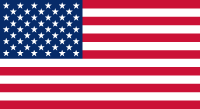
If you're looking to pick up a quality pool table ball set, you might need some clarification about the differences between various kinds of balls.
A game of pool can be heavily influenced by any number of elements, including the cue, chalk, table, or ball, so it's wise to do some research before you invest. But even professional pool players can be overwhelmed by the sheer number of different pool ball sets there are out there.
How do you zero in on the right ball set for you? Here are some tips on buying pool table balls you'll want in your back (or corner) pocket when it's time to rack 'em up.
The Differences in Quality
Quality is one of the core considerations when it comes to pool table balls and one of the reasons you'll see such a wide range of prices.
If you want to purchase top-tier balls, pay close attention to the material used to make them. Acrylic or polyester balls are usually lower quality, while higher quality balls are often made from phenolic resin.
The price will likely reflect the quality, but it's still worth taking a closer look before you accidentally pick up an overpriced set made from cheap material.
You could make the case that newer players wouldn’t benefit from pricier options, and some value aesthetics over performance when it comes right down to it. With that in mind, one of the best choices for new players is polyester resin balls.
Polyester resin balls are long-lasting and usually, come with a reasonable price point. As such, they're great starter balls for players who think they'll stick with the game and eventually upgrade to something a little sturdier.
The Differences in Size
Pool balls come in many sizes and weights, which can be confusing when shopping around for a pool table ball set. This mostly depends on the table size and dimensions, and whether it is a pool snooker table.
The ideal ball size can vary depending on how large your table is. The right size for a full-size American pool rack is two-and-a-quarter inches, while seven-foot tables favor two-inch balls, and six-foot tables use even smaller one-and-seven-eighths-inch balls. Unless you're sure you have a smaller table, it’s a good idea to go with the first option.
Which Ball Is the Most Important?
Every ball in your pool ball set is equally important, with the exception of one: the cue ball.
The cue ball has a considerable influence on gameplay, and it’s frequently purchased separately for this reason. Investing in a higher-quality cue ball that you can get comfortable with as you practice may be advantageous.
Which Pool Ball Brand is Best?
Most pro players agree that Aramith Billiard Balls are the industry standard pool table ball sets. Their phenolic balls last five times longer than polyester resin balls, with some remaining table-worthy after millions of impacts.
Aramith balls also look professional, boast excellent hardness and uniform weights, and are internationally approved for billiard tournaments and championships. If you want to take your play to the next level, Aramith Billiard Balls are a fantastic investment.
How Long Do Pool Table Balls Last?
Higher-quality balls, like ones made from phenolic resin, tend to last longer. That means they’ll also cost more.
Pros need to consider this before buying, as they'll want balls with more durability to avoid constantly replacing cheaper balls. This longevity also justifies the higher price tag, as you'll see that the long-term cost is generally lower than with cheap balls.
How Does a Pool Table Recognize the Cue Ball?
Pool tables are designed to differentiate the cue ball and other balls, and there's a good reason for this — they’re slightly larger than standard billiard balls and sometimes feature a magnetized center. These characteristics allow the table to separate and return the cue ball following a scratch.
Larger cue balls can't pass through the return chute, so they get rerouted to a dedicated slot. Magnetized balls are attracted to a sensor inside the pool table that pulls them along a track to return to the player.
While both types of cue balls work for casual play, larger cue balls can feel strange to professional players. Conversely, magnetized versions can sometimes feel like they have a mind of their own, so it comes down to personal preference.
Your Primary Aim When Buying a Pool Ball Set
Your best bet for making a solid (and stripe) purchase is to focus on the material, as this trait will impact your performance the most. The brand you choose is also an important consideration; some brands don't hold themselves to high standards, leaving you with balls that have smoothness and density issues.
Finally, consider how you'll be using your pool ball set. The professional will have different criteria from the hobbyist, and it's perfectly understandable to opt for a different material or brand based on how you plan to play.
Now that you know what you're looking for, where can you get it? Billiard Factory carries some of the best billiard brands — including Aramith — to satisfy every kind of player. Browse our catalog to find the right fit for your table today!







 Shop now. Pay over time with affirm
Shop now. Pay over time with affirm